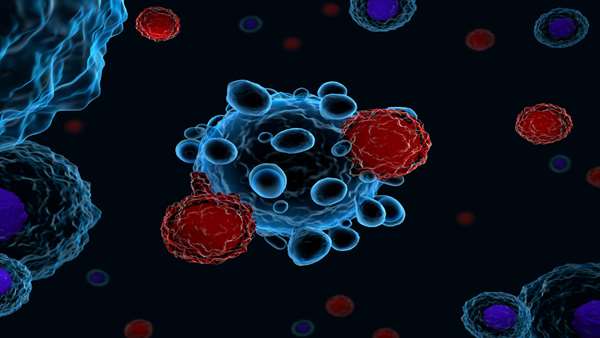The use of CD19 chimeric antigen receptor (CAR) T-cell therapy was effective in pediatric patients with relapsed B-cell precursor acute lymphocytic leukemia (BCP-ALL) with central nervous system (CNS) involvement, according to an international study.
Most prior CAR T studies have excluded patients with leukemia with CNS involvement, and “data regarding these cases are sparse,” according to study researchers.
This retrospective study included 55 children and adolescents with BCP-ALL with CNS involvement who received CAR T-cell therapy. Patient data were submitted to the Resistant Disease Committee of the International Bone Marrow Transplantation study group. All patients received bridging therapy and lymphodepletion with fludarabine and cyclophosphamide.
Twelve patients received CD28-based CAR T-cells, and nine subsequently underwent allogeneic hematopoietic cell transplantation (alloHCT). Forty-three patients received 4-1BB-based CAR T-cells.
The majority (94%) of patients who were evaluable for
response achieved complete response after therapy. Relapse occurred in 22 patients. Nineteen patients had relapse after 4-1BB-based CARs, including 12 CNS relapses, and three of 12 patients relapsed after CD28-based CAR-Ts and subsequent alloHCT, with no CNS relapses.
“Treatment with CAR T-cells as stand-alone therapy could not fully prevent subsequent CNS relapses, perhaps due to insufficient expansion and persistence leading to a majority of CD19-positive relapse events,” the researchers wrote.
In all, 65% of patients experienced cytokine release syndrome (CRS), and 38% had neurotoxicity. CRS occurred more frequently after the CD28-based CAR-Ts. Immune effector cell-associated neurotoxicity syndrome (ICANS) was diagnosed in 75% of patients who received CD28-based CAR-Ts and in 28% of patients who received 3-1BB-based CARs (P=.005). One ICANS-related death occurred in a patient treated with CD28-based therapy.
“These data suggest that CAR T-cell therapy for relapsed ALL with CNS involvement is on average as effective as for medullary relapse alone, with the exception of isolated CNS disease,” the researchers wrote. “The toxicity associated with certain CAR designs documented in our study, as well as the potential to prevent CNS relapse, should be taken into account in the design of future clinical studies.”




ارسال به دوستان